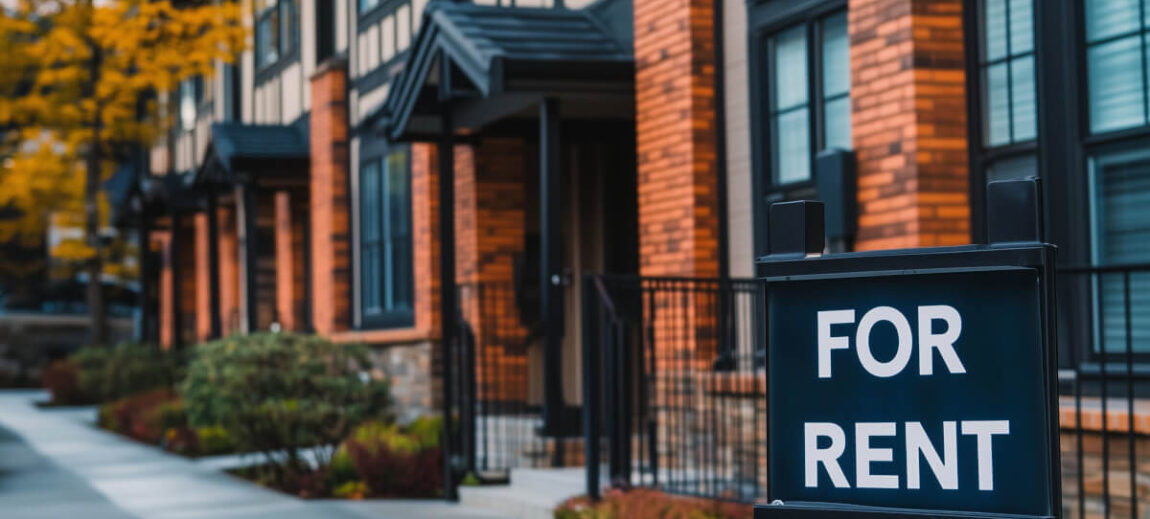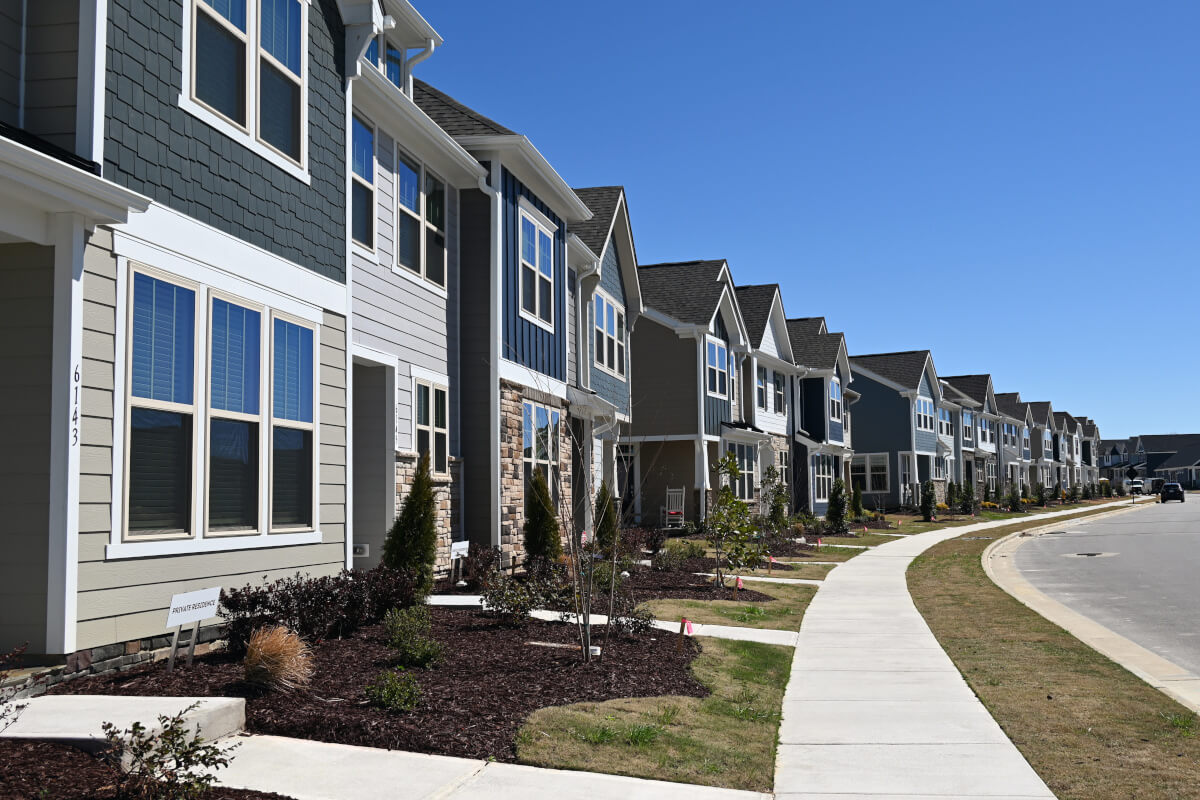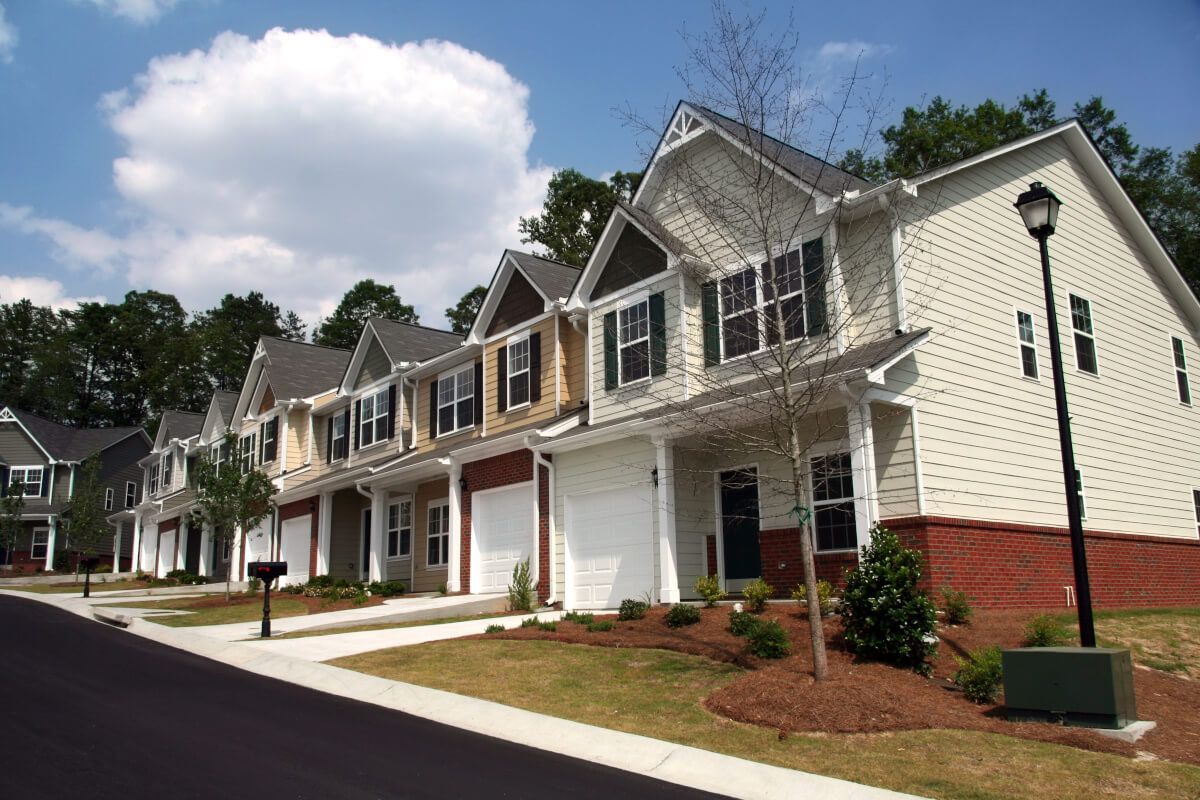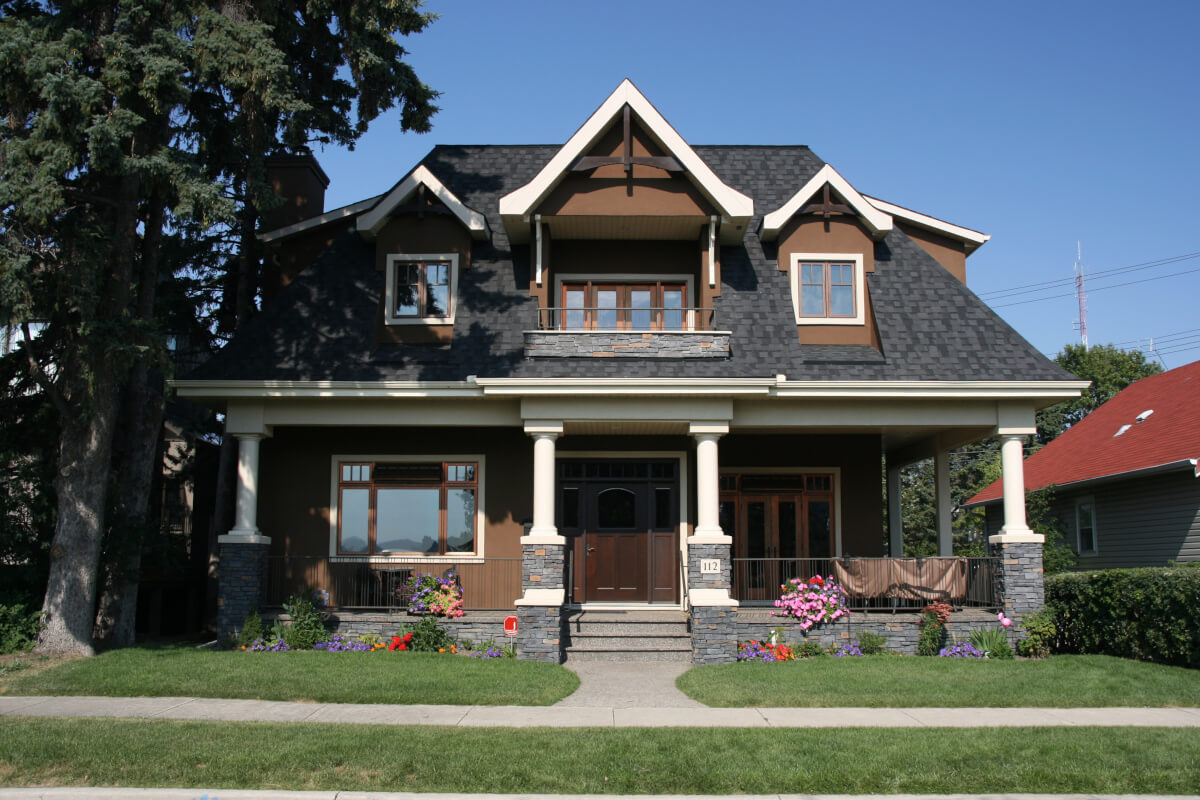If you’ve ruled out renting an apartment or a condo, your remaining choices are a townhome or a single-family house. Though only four letters differentiate them, townhouses and houses have many stark differences that might surprise renters. From maintenance needs to rent costs, here are a few distinctive factors to consider when choosing between renting a house vs. a townhome.
House vs. Townhouse: What’s the Difference?
Before discussing the pros and cons of each option, let’s make sure we understand the fundamental differences between houses and townhomes. While both offer more privacy and space than apartments and condos, townhomes and houses still have their fair share of differences, including:
Typical construction
Townhomes have a very distinguishable layout that sets them apart from standalone homes. The typical townhouse has a very narrow, multi-story build. You’ll find this same construction in any townhouse, which is part of the reason why they’re so distinctive. Single-family homes, on the other hand, present a variety of layouts and architectural styles. Single-family homes are also built as standalone properties, while townhomes are typically attached to at least one neighboring townhome.
Size and square footage
Townhomes will usually be smaller than your average single-family home. The average townhome is about 1,000-3,000 square feet, with a compact front and back yard. While you can find a single-family home of similar size, these properties will usually be much larger. Single-family homes also have larger front and back yards, making them more optimal for outdoor play with pets or children.
Amenities
Amenities significantly distinguish townhomes and houses. When you rent a townhouse, you’ll usually have access to community perks like pools, fitness centers, and clubhouses. A single-family home won’t offer access to community amenities. However, some homes might have private pools or at-home gyms for residents to use.
Maintenance
Maintenance is another thing to consider when choosing between a townhome or a house. Townhomes tend to be more low-maintenance, as property management companies are usually responsible for external maintenance like lawn care or exterior repairs. Single-family homes can require more upkeep. You might have to take care of some of these repairs yourself or arrange professional help through your landlord, which could elongate the maintenance process.
Cost
While rent for single-family homes largely depends on the local market and location, townhomes tend to have a more uniform rental price. Townhouses are typically less expensive to rent than a stand-alone home. With houses, you’re paying more for increased privacy, space, and, in some cases, access to private amenities.
Pros and Cons of Renting a Townhome
Now that we’ve covered the main differences between townhomes and houses, let’s take a closer look at the townhome renting experience. With this option, you’ll reap the benefits of less upkeep and lower costs. However, you’ll also miss out on some features exclusive to stand-alone properties. Below, we highlight some main pros and cons of renting a townhome.
Pros of Renting a Townhome
Renting a townhome has many advantages over renting a house, including:
Lower maintenance
If home repairs and upkeep aren’t in your wheelhouse, a townhome might be your best option. Typically, landscaping, exterior work, and other maintenance tasks are handled by property management, saving you the time and effort needed to arrange repairs yourself.
Access to community amenities
As mentioned earlier, renting a townhome means having access to community amenities like pools, gyms, and entertainment spaces. These perks can make it easier to live a more active, social lifestyle without having to go far from home. Not to mention, you’ll also enjoy the luxury of these amenities without being responsible for their upkeep.
More cost-effective
Overall, renting a townhome tends to be cheaper than renting a single-family home. This means you can save some money on rent and utility costs and potentially get yourself in a spot to buy a property down the road.
Cons of Renting a Townhome
While there are many pros to renting a townhome, this option also has its fair share of downsides, including:
Less privacy
Townhouses are typically attached to at least one other unit, meaning you’ll have less privacy than you would in a stand-alone home. If you’re sensitive to noisy neighbors or prefer to have more personal space, you might be better off renting a house.
Limited outdoor space
While some townhomes have small yards or balconies, outdoor space is generally limited. This can be a huge dealbreaker for pet owners, families with children, or those with outdoor hobbies like gardening or grilling.
HOA restrictions
Becoming a part of a townhome community usually means having to abide by HOA restrictions. These could include exterior modifications, parking, or pet ownership limitations. Renters will often go the single-family route if they want to customize their space rather than conforming to a uniform look or home style.
Pros and Cons of Renting a Single-Family Home
Next, let’s discuss the pros and cons of renting a house. Like townhomes, this rental option presents a balanced mix of upsides and downsides. To determine if a single-family house is the best fit, let’s weigh the pros and cons below:
Pros of Renting a Single-Family Home
Renting a single-family home is a positive experience for most, especially those who value the following:
More privacy
Renting a single-family home means not sharing walls with your neighbors. Rather, it provides more personal space, privacy, and peace of mind, as you won’t have to worry about noisy neighbors or disturbances.
Larger back yards
Unlike townhomes, houses tend to have expansive front and back yards perfect for kids, pets, and hosting outdoor gatherings with friends and family. This can be a huge selling point for renters in warm climates who prioritize outdoor living year-round.
Greater autonomy
Renting a stand-alone home means having more autonomy. Rather than dealing with umbrella policies from property management companies and HOAs, you’ll typically only have to deal with your landlord. This means you’ll have a lot less hoops to jump through when you want to make modifications or upgrades to your space.
Cons of Renting a Single-Family Home
Renting a single-family home also has its drawbacks, including:
More maintenance
Going the single-family home route often means taking on additional maintenance responsibilities. In your lease agreement, your landlord may hold you responsible for landscaping upkeep and minor repairs like switching lightbulbs or fixing a leaky faucet. However, you may be able to negotiate these responsibilities before signing your lease, depending on your landlord’s level of leniency.
Higher rent and utilities
Compared to renting a townhome, renting a single-family house will almost always be more expensive. This is because you’re paying for the extra perks, including more space, privacy, and all the other benefits that come with living in a house over an apartment, condo, or townhome.
Fewer community amenities
Unlike condominiums or townhomes, houses don’t have shared amenities like fitness centers, pools, or common areas. This doesn’t mean that a rental home won’t have these features, but if they do, you’ll likely pay a premium price.

The Bottom Line
Choosing between a house or a townhouse can be tough. While both offer advantages like increased privacy and space, they also each present unique downsides. When deciding which fits you best, consider costs, maintenance, privacy, and amenity access. Evaluating these factors will help you determine which options best align with your lifestyle and budget.
FAQ
How can you tell if a house is a townhouse?
A townhouse is typically a multi-floor home that shares one or more walls with neighboring units but has its own separate entrance. Unlike detached single-family homes, townhouses are part of a row of similar homes and often belong to a community with shared amenities.
Do houses appreciate more than townhomes?
In general, single-family homes tend to appreciate more than townhomes due to their independence and larger lot sizes. However, market trends, location, and demand can heavily influence appreciation rates for both types of properties.
Is it better to rent a townhome or a house?
It depends on your needs and lifestyle. Townhomes are often more affordable and come with shared amenities, while houses offer more privacy, space, and often a larger yard.
What should I consider when deciding between renting a townhome or a single-family home?
Consider factors like budget, desired space, privacy, and maintenance responsibilities. Townhomes may provide access to community amenities, but single-family homes often come with larger yards and fewer shared walls.




